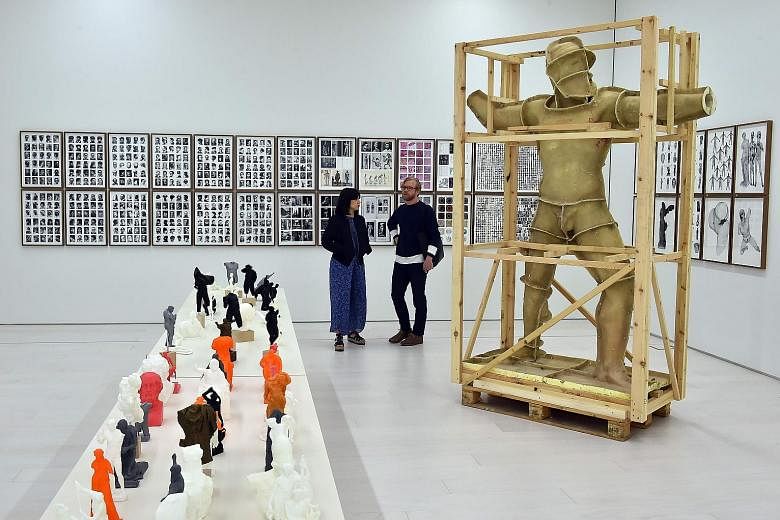ATHENS • Even today, in a supersaturated calendar of worldwide art events, no show matters more than Documenta, a colossal German exhibition of contemporary art, reinvented every five or so years as a "museum of 100 days".
Of 13 editions so far, two have become touchstones in recent art history.
The freewheeling fifth edition, curated by the Swiss Harald Szeemann in 1972, equalised painting and sculpture with conceptual art and happenings. The 11th edition, organised by Nigerian Okwui Enwezor in 2002, propounded a global art ecosystem with Europe no longer at the centre.
Every Documenta, since the first in 1955, has served as a manifesto about art's relevance and direction.
Each decision has taken place in Kassel, Germany, an unlovely town north of Frankfurt destroyed by Allied bombs in World War II.
But this year - the 14th edition of Documenta, led by 46-year-old Polish curator Adam Szymczyk - is being shared by Kassel and Athens in Greece, a city with intertwined crises of finance and migration, and the capital of a country whose recent relations with Germany have been anything but collaborative.
He and the bulk of his curatorial team have been living in Greece for years and the Athenian half of this two-city show opened last Saturday, in the presence of the presidents of both countries.
The local welcome has been sceptical. The German news media, too, has looked askance at Documenta's expansion into the capital of what some still offensively call a schuldenland, or debtor country.
A full reckoning will have to wait until June, when the show's second half opens in Kassel.
This Hellenised Documenta is sometimes forceful, often obscure, and in places exhaustingly proud of itself. And yet the show's most important themes - migration, debt, fraying European unity and the historical antecedents of today's populism and intolerance - are ones Athenians have reckoned with for years.
Now that those troubles span the world, Greece may be the best place to come to grips with them.
There is art by nearly 160 participants, almost all of whom will also show work in Kassel. For every familiar name, such as American painters Vija Celmins and Stanley Whitney, there are 10 people have never heard of, often for good reason.
The event sprawls across 40 sites, though the most important is probably the new National Museum of Contemporary Art.
The accompanying bureaucratic and financial headaches are not incidental for Szymczyk, who opted to work with public institutions rather than Athens' cash-flush private museums.
A fair chunk of the €37-million (S$55-million) budget has gone into nearly bankrupt Greek art groups.
Standout works at the museum include Tripoli Cancelled, a film by New York-based artist Naeem Mohaiemen, set on an old 747 parked at a crumbling airport in Athens. The pilot goes through the motions of announcing flight time, but never takes off. Like the myriad migrants whose movements are blocked by European Union regulations, this plane is stuck in Greece.
Music and sound are major concerns of this Documenta, especially in the section housed at Athens Conservatoire. Graphical scores by Greek composers such as Jani Christou are juxtaposed with nifty diagrams of a rare synthesizer, the EMS Synthi 100, which the Documenta team has been restoring for Greek electronic musicians.
NYTIMES

